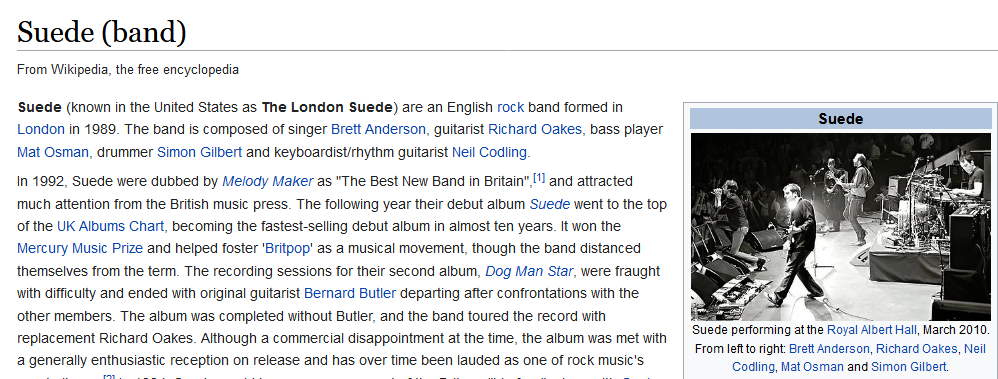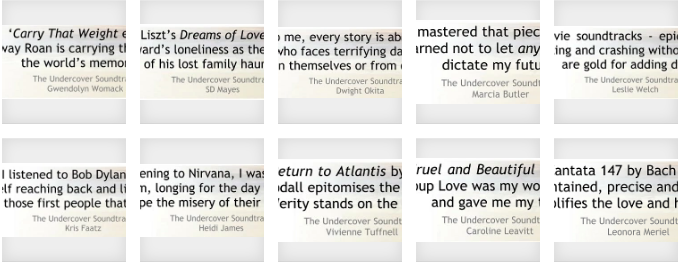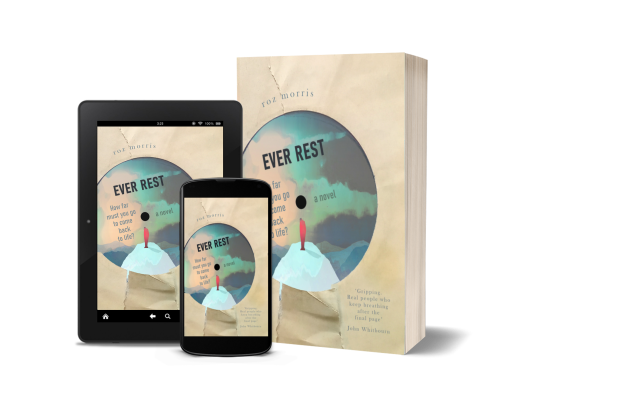My guest today, Mat Osman, is now on his second artistic career. You might already know him as a founder member of Suede, who are touring again, and now he’s published a debut novel, The Ruins.
I was drawn to The Ruins because of its musical DNA. Musicians are one of my enduring interests, as you might know from My Memories of a Future Life and my series The Undercover Soundtrack. I’m not finished with musical souls either – there are plenty in Ever Rest.
 As you might expect, Mat’s novel The Ruins has satisfying musical ingredients. It also poses intriguing questions about identity and a sense of self. The main characters are twins, Brandon, a rock musician, and Adam, his reclusive twin brother. When Brandon is assassinated in bizarre circumstances, Adam is dragged into his unfinished business. But it’s more than that. The novel is exquisitely aware of primal bonds – the bonds of twinhood, motherhood and the mysterious, transcendent bond of music itself. Anyway, I’m thrilled that Mat agreed to be interviewed. (My review is here.)
As you might expect, Mat’s novel The Ruins has satisfying musical ingredients. It also poses intriguing questions about identity and a sense of self. The main characters are twins, Brandon, a rock musician, and Adam, his reclusive twin brother. When Brandon is assassinated in bizarre circumstances, Adam is dragged into his unfinished business. But it’s more than that. The novel is exquisitely aware of primal bonds – the bonds of twinhood, motherhood and the mysterious, transcendent bond of music itself. Anyway, I’m thrilled that Mat agreed to be interviewed. (My review is here.)
Roz Mat, I’ve said writing is your second artistic career. Is that strictly true? Did music come first or writing?
Mat As a career it was definitely music. I wrote in school but that was mainly because you had to, and from the age of about 12 I was obsessed with music and bands. That life is so all-encompassing that, although I read obsessively (all those plane journeys, all those hotel rooms), I really didn’t consider writing. But when the band split in 2003 I worked for a while as a journalist and I found that I loved to write. I did mainly non-fiction; I edited a London guidebook and wrote about art and travel but I also started to write short stories. It was a way of getting certain odd ideas out of my head. I’d wake up thinking ‘what would it be like to live in a house where everything was just as it was in the 1950s’ and take it from there. One of the advantages of a life in music is that you get used to the concept that what you do with difficult ideas is to turn them into art.
Roz So The Ruins is your first published novel – was it the first manuscript you finished?
Mat Yes and no. The Ruins sprang from those short stories. I did what I think a lot of first-time writers do – cobbled together a few of my best stories that seemed to fit into the same universe and called it a novel. It was a horrible Frankenstein’s monster of a thing, and I cut 90% of it, but it meant that I’d started, and that’s just about the hardest thing.
Roz The novel is brash and flamboyant and fun, with music, rock-star parties, high living and lowlives, twins, Las Vegas casinos, gangsters, a murder. It’s also highly sensitive to the characters’ inner emotional lives. It’s the kind of novel that can operate on several channels, depending on how the reader’s mind is tuned. I’ve seen some reviewers describe it as a story about identity. What I most enjoyed was its examination of deep attachments, how they’re never predictable, never static and have to be formed on their own terms. Adam’s connection with his twin Brandon; Brandon’s connection with his girlfriend Rae and his child Robin; Adam’s connection with Robin and with Rae. What were the main curiosities for you?
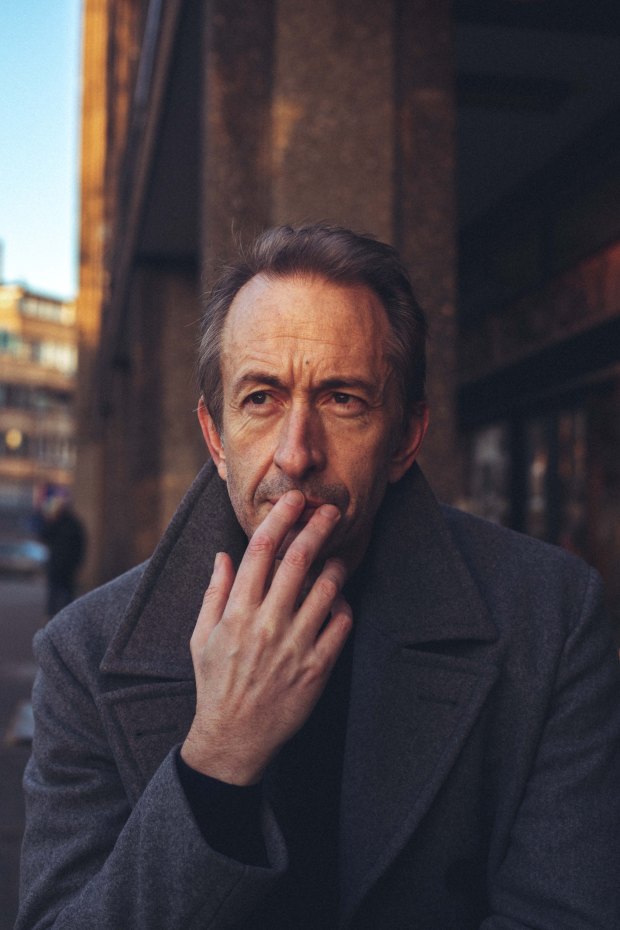
Mat I think at its emotional heart it’s about how one wants to be loved: by one person, entirely and deeply, or by millions of people, but in a shallower way. Especially nowadays there’s this constant pressure to have thousands of ‘friends’ and ‘followers’ and Adam is just kicking back against that idea.
The twins thing originally came about because I wanted to write about what would happen if you you could go back and choose the path not taken. Adam gets to see what being selfish and outgoing would have brought him. Brandon tries to be a sober and careful man. But also I have twin nieces and they were a constant inspiration – I love watching the way they are almost forced apart by our expectations. One has to be the smart one, one has to be the funny one, etc. etc. and as they try to fit into those roles they grow to be different from one another.
Roz The blurb mentions that the novel is set in 2010, when a volcano eruption put the world on hold. Does that indicate you began work on it that year? I’m certainly a long-haul writer – the book I’m finishing has been in transit for six years. The idea is even older – from a short story I wrote about 25 years ago. I could have dashed the novel off quickly, but my initial idea didn’t satisfy me. I felt it held a much bigger resonance and transformation – and I needed to discover what that was.
I recognise – I think – similar layers in The Ruins. Are you also a slow-burn writer? (PS If you dashed it off in just a year, I will flounce out in a jealous huff.)
Mat It took about three years from me thinking ‘this is a novel’ to finishing it, but there were lots of cul-de-sacs and dead ends along the way. I’d had in mind to set a book in that time period for a while. The sense of being stuck while the world falls apart adds a layer of tension to the whole story.
Roz Did you have a process?
Mat I started without a process and found I needed one if I was ever to get anything done. If I was at home I wrote in the Map Room of the British Library. It’s hard-core researcher world – lots of beards and sandals – and I couldn’t even open Twitter or Facebook for fear of lowering the tone. On tour I wrote in hotel rooms. I use a program called Cold Turkey Writer which doesn’t let you use your laptop for anything else until you’ve done a set number of words. I regularly curse it but it got me used to the idea that you just write, every day, and I wrote very long and then cut a lot. And then my publisher cut more.
Roz Did you mind that the publisher cut so much?
Mat I don’t mind it – even the pieces that got cut were useful, I was thinking about the characters while I was writing. At first I hated the idea that there were something like 60,000 words that didn’t get used. Now I just think of them as back-story.
Roz Who were your influences, literary or otherwise?
Mat It’s hard to know who actually influences you and who you just like. But among the writers I love and was reading at the time this lot were definitely part of its world: Michael Chabon, Michel Faber, Patricia Highsmith, JG Ballard, M John Harrison, Muriel Spark, Thomas Pynchon, Raymond Chandler, Jennifer Egan, AM Homes and China Miéville. Lots of films were an influence too – especially Performance and Mulholland Drive.
Roz Another signature element is, of course, the musicians in the band. I want to discuss their connection through music. Away from their instruments, they’re chafing, squabbling. When they play music, they find a place of respect. It’s still a battlefield, but it also straightens them out and unifies them. It’s even ennobling. We feel that music is a personal quest and at the same time, a very scuffed marriage.
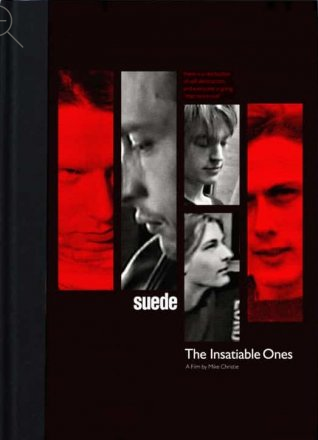 Mat Anyone who’s seen the Suede Insatiable Ones documentary will know the truth: most bands only really communicate through music. Most musicians put the very best of themselves into their music which is why often people are disappointed when they meet their heroes. They’re meeting the 100% grumpy, insecure, tired, petty, cruel person rather than the 10% of themselves that they save for their art.
Mat Anyone who’s seen the Suede Insatiable Ones documentary will know the truth: most bands only really communicate through music. Most musicians put the very best of themselves into their music which is why often people are disappointed when they meet their heroes. They’re meeting the 100% grumpy, insecure, tired, petty, cruel person rather than the 10% of themselves that they save for their art.
Roz I also loved your sense of the bizarre. When Brandon walks on the frozen lake. The party with the beached chandelier and the red swimming-pool. The half-built complex in the desert where Rae lives with Brandon. Kimi with her electronic voicebox, which becomes a strange musical phenomenon. The couple who live on the boat in the field of bluebells. You make them totally believable. Were any of these from real life? Of course, I might be doing you a disservice by asking you that, as the fiction writer’s job is to make things up….
Mat The frozen lake is right where it says it is in the book – in Tahoe City behind a diner called Rosie’s. I stay there a lot and use it as a short cut. But of course that’s in mid-winter! The half-built complex is based on a spectacular photo-essay on this abandoned real-estate project where they’d cut into the hillside but gone bust before the houses were built. The boat has its origins in Derek Jarman’s house in Dungeness, similarly close to a nuclear reactor. The voicebox and the pool of blood? No idea where they came from.
Roz I saw in another interview that your original title was Control. What led you to The Ruins? Control must have been a suitable title in its own way, though. Can you talk about that?
Mat Control felt, in a strange way, too accurate. Much of the book is about control and I realised it was a title that described without adding anything. Whereas The Ruins felt more oblique but somehow more informative. It was almost called This Is What You Get Instead Of Love but it just looked too ungainly on the page.
Roz Tell me about your path to publication and how you met Repeater Books.
Mat I went all around the houses to end up where I started. Tariq who runs Repeater was the first person to read it. I wanted someone who I trusted to tell me if it was worth pursuing and luckily he liked it, and offered to publish it. But then I went away and got an agent and went through meeting publishers because I wanted to make sure Tariq wasn’t the only person in the world who thought it was any good. I had offers elsewhere but there were certain things – I got to design the cover – that only Repeater were prepared to offer. And they’re fantastic people who love books, which helps.
Roz What are you working on at the moment? Is it similar or are you trying something else?
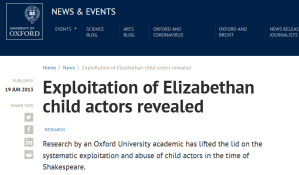 Mat I’m writing about The Blackfriars Boys; a troupe of Elizabethan child actors who were taken from their families and made to take part in these very satirical, very adult, plays and masques. I wanted to write something that was way outside my field of reference to get a sense of not falling back on my own anecdotes and stories. It makes it a lot slower but there’s something really rewarding about having to invent every little moment.
Mat I’m writing about The Blackfriars Boys; a troupe of Elizabethan child actors who were taken from their families and made to take part in these very satirical, very adult, plays and masques. I wanted to write something that was way outside my field of reference to get a sense of not falling back on my own anecdotes and stories. It makes it a lot slower but there’s something really rewarding about having to invent every little moment.
Roz Are there are any consistent territories or themes you’re drawn to?
Mat The new book has a lot about London. And about how making art changes a person. So there are recurrent themes.
Roz Is there anything you’d do differently with this next novel?
Mat I swore I would write smarter; make fewer revisions and stick to the plot, but I’m finding that’s just not me. I have a mind that loves digression. I have to write out these odd side-alleys only to cut them later.
 Roz Does music help in your writing process at all? I know writers who build soundtracks to evoke characters, settings or a general writing mood (hence my blog series, The Undercover Soundtrack). I know others who say music is too distracting and they must have silence. I’m both. I find music infuriatingly distracting. If I can hear builders playing the radio in my street, I find it unbearable – so unbearable that I can usually persuade them to turn it off (hell hath no fury like a writer who believes their work is being spoiled). But that distraction is perversely useful if I’m dithering in a first draft, looking for a way into a character or a scene. I put on music and a battle begins in my mind. I’m trying to ignore the music and concentrate, like swimming against an opposing current, which brings instant focus because I can’t be distracted by anything else. Meanwhile, the music is colouring every thought. An interesting tension emerges. It can’t be builders’ radios, though…
Roz Does music help in your writing process at all? I know writers who build soundtracks to evoke characters, settings or a general writing mood (hence my blog series, The Undercover Soundtrack). I know others who say music is too distracting and they must have silence. I’m both. I find music infuriatingly distracting. If I can hear builders playing the radio in my street, I find it unbearable – so unbearable that I can usually persuade them to turn it off (hell hath no fury like a writer who believes their work is being spoiled). But that distraction is perversely useful if I’m dithering in a first draft, looking for a way into a character or a scene. I put on music and a battle begins in my mind. I’m trying to ignore the music and concentrate, like swimming against an opposing current, which brings instant focus because I can’t be distracted by anything else. Meanwhile, the music is colouring every thought. An interesting tension emerges. It can’t be builders’ radios, though…
Mat I usually play music when I work, even on headphones. There’s a certain kind of instrumental music that works for me: repetitive but not too energetic. People like A Winged Victory For The Sullen and Bohren Der Club Of Gore. With The Ruins I played a lot of the music the characters listened to as well, just to check the mood. There’s a playlist of every track mentioned in the book at Spotify.
Roz You set The Ruins in 2010, in a time of interesting world crisis. You’ve published it in perhaps the strangest, most disruptive crisis we’ve seen so far this century. Any thoughts? There must be months of plans that have had to change…
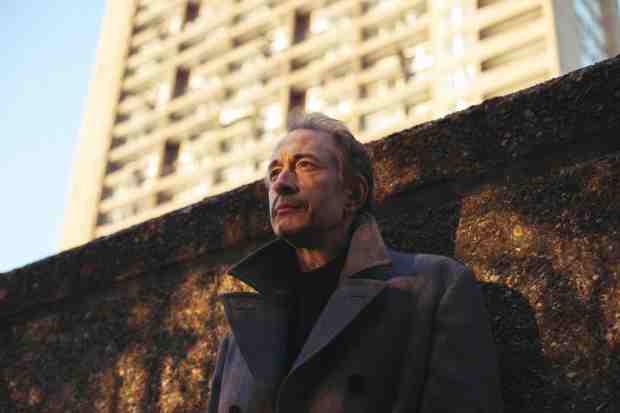
Mat I managed to squeak in most of my readings and Q&As before the lockdown, which I’m so grateful for but I’m disappointed I never got to do any of the big literary festivals because a) years of music have made me a feedback junkie and I miss hearing what people have enjoyed about the work, and b) there are so many writers who I admire who I’ve never met.
Find The Ruins here and connect with Mat on Twitter here @matosman
And speaking of novels about musicians, this is Ever Rest.
There’s a lot more about writing in my Nail Your Novel books – find them here. If you’re curious about my own work, find novels here and my travel memoir here. And if you’re curious about what’s going on at my own writing desk, here’s my latest newsletter. You can subscribe to future updates here.

